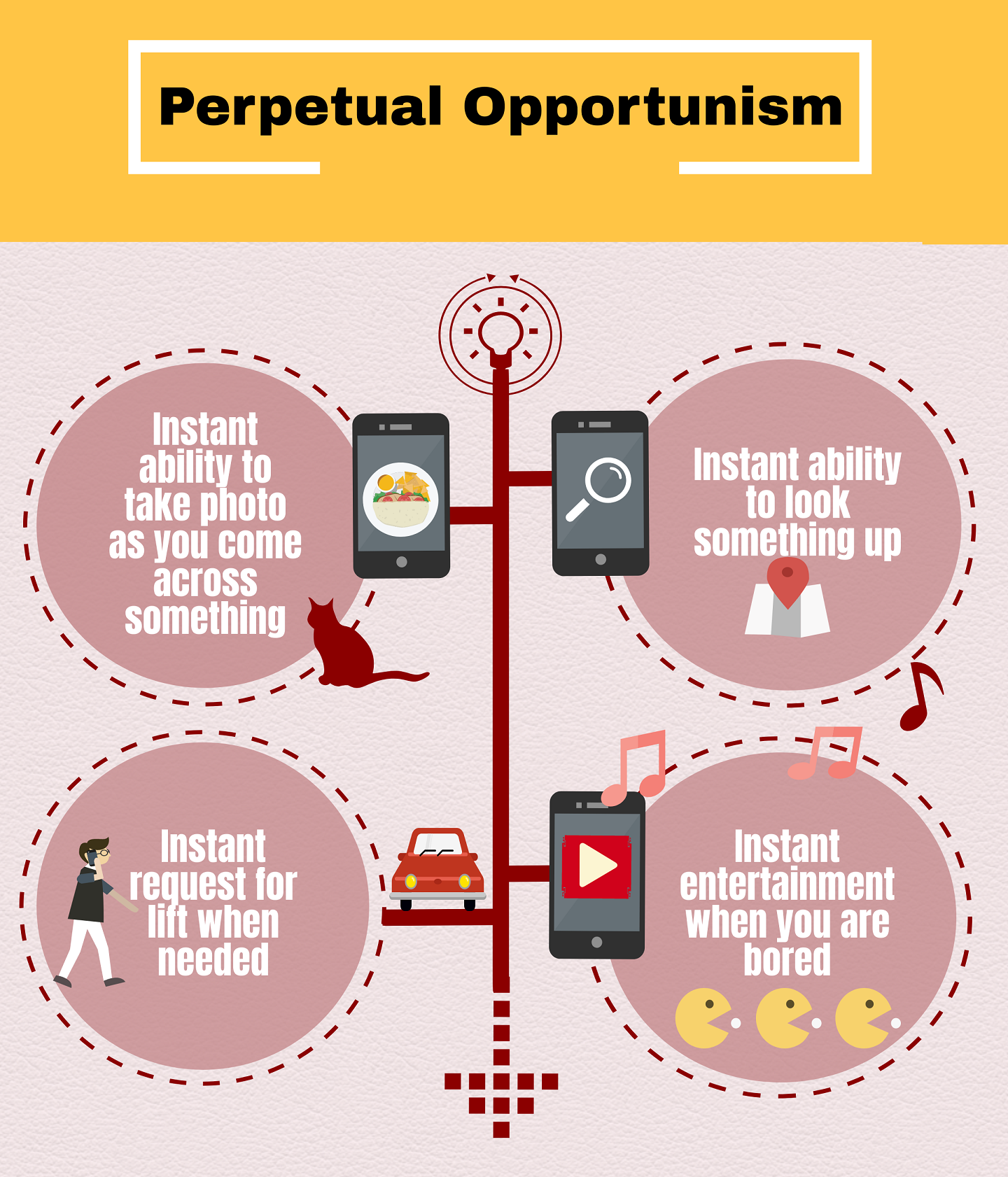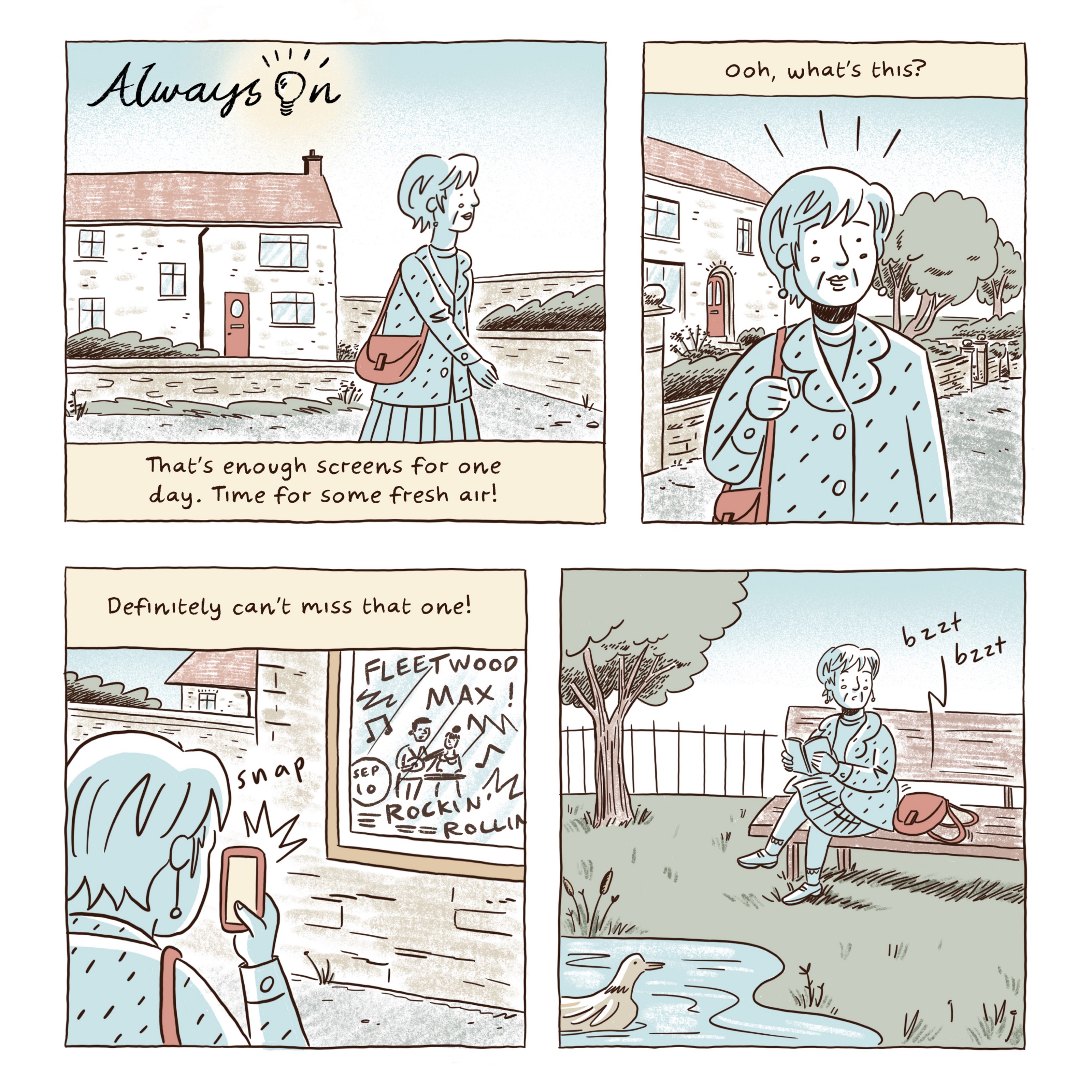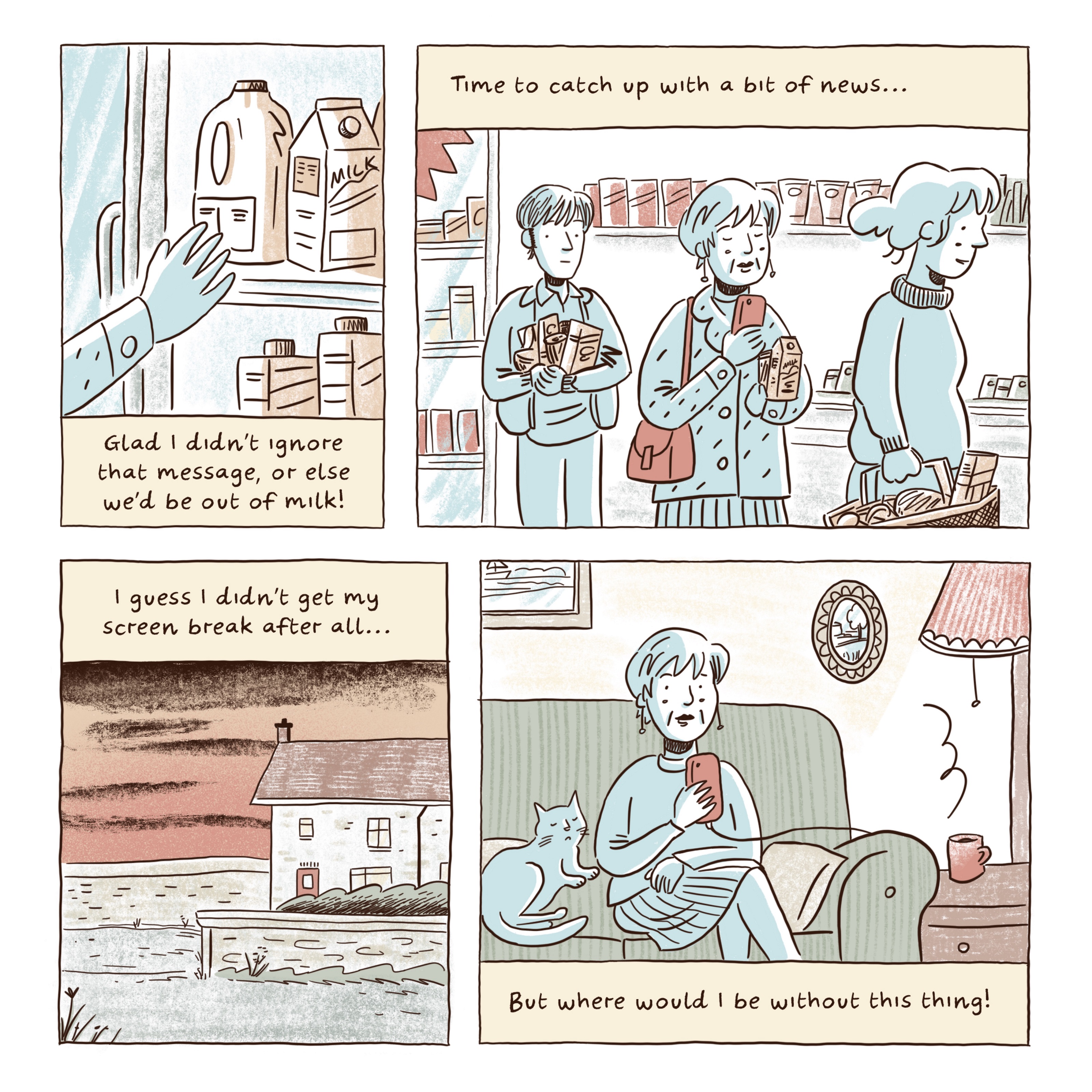Perpetual Opportunism
Previous Discovery Next Discovery
Already with mobile phones, we could see the advantages of perpetual contact, which meant, for example, that one could leave home while agreeing on the final meeting place until one was almost at their destination. But perpetual opportunism is far more profound as a reorientation to the world around us: you can never tell when you just happen to see a particularly photo-worthy scene that would make an ideal Instagram post, but the smartphone is with you there and then, so you won’t miss the opportunity. Or, say you are walking along and you just happen to see some information on a notice board. Now, you can record this instantly. The very moment when you have a thought about something, you can immediately share and discuss it from wherever you are. As soon as your infant has done something that was so lovely that you have an instant desire to share it with the entire family, you can do this.

An illustration of the concept of ‘perpetual opportunism’.
Perpetual opportunism also means that there is never a time to be merely bored. Whether you are waiting in a queue or commuting, you can always rely on the smartphone to be entertained or get on with other things. This knowledge of perpetual opportunism changes our expectations and our experience of the world around us. We depend less on planning and can feel more confident of being able to respond to life experiences as they unfold around us. This relation to the transient and opportunistic may be viewed as both positive and negative.
The concept of perpetual opportunism is further illustrated in this short film:
Cartoon based on Daniel Miller and Pauline Garvey’s research in Ireland. Scripted by Laura Haapio-Kirk and Georgiana Murariu and illustrated by John Cei Douglas.


Previous Discovery Next Discovery


